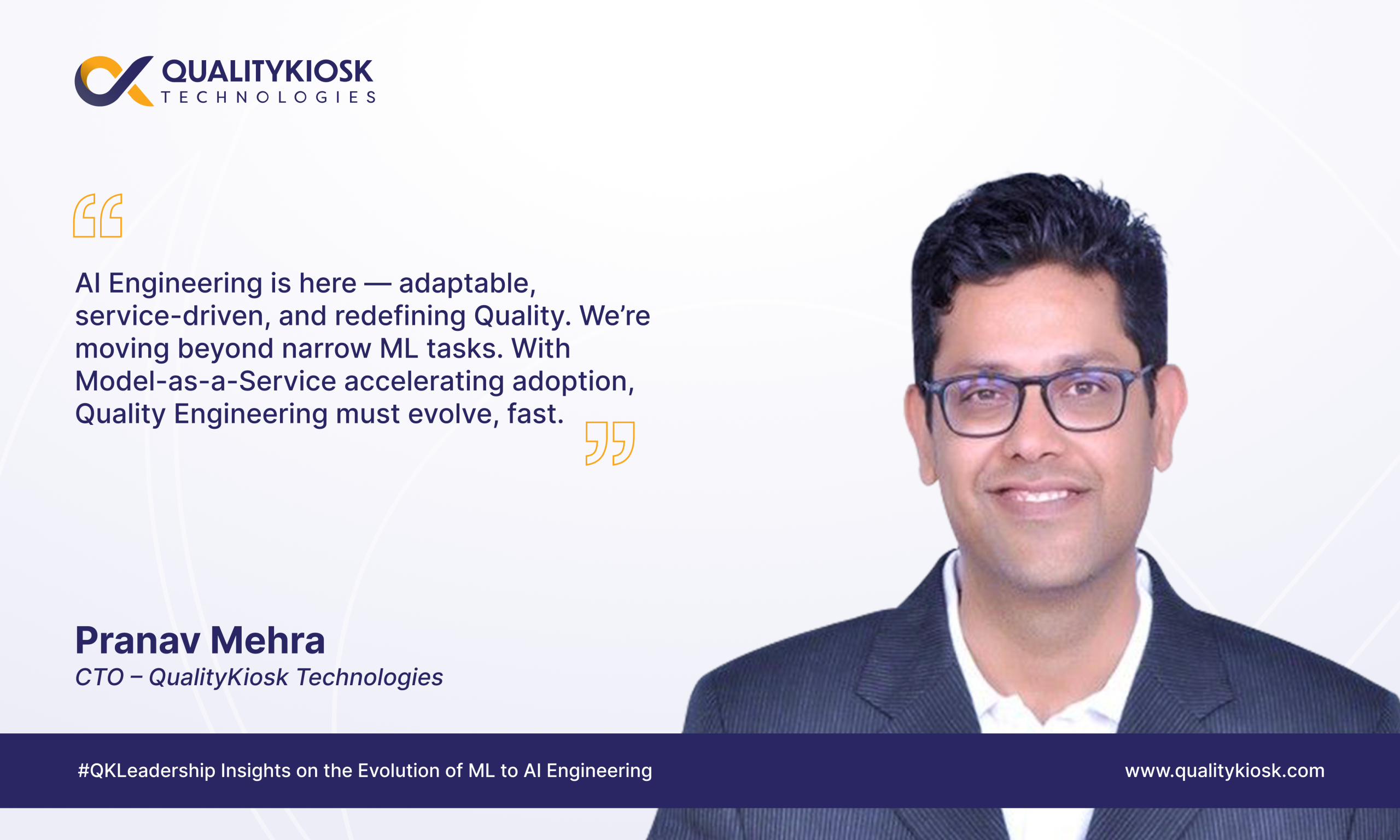We’re entering a new era of AI Engineering, where foundation models don’t just learn; they reason, adapt, and surprise us. Traditional ML workflows are no longer equipped to handle the fluid, open-ended nature of LLMs and multi-modal systems. This shift demands a new quality mindset.
As a technology leader, I’ve seen firsthand how the role of engineering is rapidly evolving. We’re no longer just building algorithms; we’re architecting intelligent systems that can learn, adapt, and solve problems in ways we’re only beginning to understand. The transition from machine learning engineering to AI engineering isn’t just a technical shift—it’s a fundamental reimagining of how we create, deploy, and evaluate intelligent technologies.
From Code-Centric to Context-Centric: The Shift AI Teams Can’t Ignore
Traditional machine learning engineering was a methodical, resource-intensive process. Data scientists would start by meticulously collecting and cleaning datasets, then spend months manually engineering features that could help algorithms recognize patterns. Each model was crafted for a specific, narrow task—requiring extensive domain expertise, complex algorithm selection, and rigorous training cycles that could stretch from months to years.
This approach has become increasingly obsolete. The exponential growth of data complexity, coupled with rapidly changing business requirements, has exposed the fundamental limitations of traditional ML engineering. Manual feature engineering can’t keep pace with the nuanced, multidimensional challenges businesses face today. Models built for one specific task quickly become outdated, while the computational and human resource costs remain prohibitively high.
Foundation models like GPT-4, Gemini 1.5, and Claude 3 come pre-trained across modalities. They don’t need hand-coded rules; they need the right context. Unlike traditional models, they can be rapidly adapted to specific use cases with minimal additional training.
Model-as-a-Service: The New Approach to Building AI
There is a new approach to building AI – the model-as-a-service approach. Previously, using an AI model required significant infrastructure to host and optimize the model. However, with the introduction of model APIs, integrating these models into applications has become as easy as making a single API call.
This approach has lowered the barrier to entry for AI adoption, allowing more organizations to leverage the power of AI in their applications.
The real-world applications of AI engineering are already transforming industries. Best Buy is already leveraging Gemini to power its AI customer service assistant, providing personalized shopping recommendations and technical support. Zomato’s Recipe Rover uses GPT-4 to analyze and suggest personalized recipes, while financial institutions like Morgan Stanley are using these models to support financial advisors get the right data and insights to drive their decision making. On the healthcare front, fine-tuned foundational models from OpenAI and Google in BioGPT and Med-PaLM are assisting the industry in medical diagnosis and research, dramatically accelerating research and patient care.
This isn’t just an incremental improvement—it’s a fundamental reimagining of how we develop and deploy intelligent systems.
The Evaluation Challenge in AI Engineering
In the rapidly evolving landscape of AI engineering, evaluation has become both a critical necessity and a complex challenge. It’s no longer enough to simply build intelligent systems—we must now rigorously understand, measure, and validate their capabilities.
The Need for AI Evaluation
Modern GenAI QA Challenges
- Open-ended outputs: One input, many valid answers
- Opaque logic: No visibility into training or reasoning
- In-context variation: Performance shifts by prompt phrasing
- No single metric: BLEU scores and accuracy don’t cut it
Bringing QK’s Quality Engineering Advantage to AI Evaluation
As the AI landscape continues to evolve, we’ve developed a practical approach that combines technological precision with strategic insight. Our methodology provides a structured way to understand and validate intelligent systems.
Our Differentiator: The Hybrid Evaluation Stack
- AI-assisted prompt & task generation
- Regression-ready testing harness for LLMs
- Human scoring + token-level telemetry
- Context validation and red teaming
This approach goes beyond traditional performance metrics. We’re focused on continuously discovering and expanding the potential of intelligent systems while systematically addressing their limitations.
As companies deploy AI applications, effective validation and refinement will differentiate successful implementations. For businesses looking to leverage AI, robust evaluation is not just a technical requirement—it’s a critical step in technological integration.
About the Author
Pranav Mehra is the Chief Technology Officer at QK, driving AI-led transformation across quality assurance, automation, and security. He leads the development of the QK AI Framework Nimbus , an all-encompassing AI ecosystem designed to optimize, scale, and secure AI applications across the enterprise. From modernizing existing tools to embedding an AI-first culture, he ensures seamless AI integration at every level. His expertise spans Conversational AI, security, and observability, enabling businesses to harness AI with confidence.





